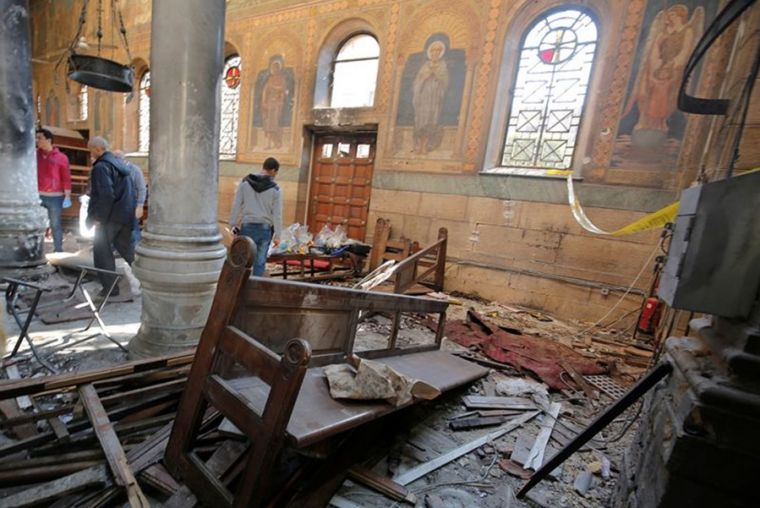Christian Widower Bares His Wife's Premonition of Her Own Death the Night Before Cairo Church Bombing

One of at least 26 people who died in the Dec. 11 bombing of a Coptic church in Cairo, Egypt knew she had it coming.
The day before the bombing, Amany Aziz, 32, told her family she would soon die, her husband Wagdi Wageh told World Watch Monitor (WWM).
"My sister phoned us and said she would like to come to visit, my wife replied, 'Wait for tomorrow and you will attend my funeral.'
"On Saturday evening, my wife also prepared a present, gave it to my mother and told her 'this is to remember me by,'" Wagdi said.
The following Sunday morning, the couple attended Mass at the St. Peter and St. Paul's Church in Cairo, a chapel next to Saint Mark's Coptic Orthodox Cathedral, seat of the Coptic Orthodox Pope.
"I was attending the Mass with my wife as usual," Wagdi said. "Suddenly we heard a huge explosion, the lights went off and the ceiling on the women's side of the church collapsed. I rushed over to search for my wife."
A 22-year-old terrorist with a suicide vest detonated himself on the side of the church where women and children sat. At least 50 others were injured in the terrorist attack; 14 remain in critical condition.
"Rubble, dust and broken wood of the pews covered most of the bodies," Wagdi said, adding that he only recognised his wife by her clothing since her face was covered with blood and dust.
Wagdi carried his wife out and put her in an ambulance. But she never regained consciousness.
"Although I feel great pain, I'm sure that she is in a very good place in Heaven. She was always praying, reading in the Bible and going to church. Pray for us," Wagdi told WWM.
The Islamic State (ISIS) later claimed responsibility for the suicide church bombing. In a statement circulated online, it said the bomber had killed and injured scores of people, vowing "to continue war against apostates," The Guardian reported.
It was among the deadliest attacks in recent memory to target Egypt's Coptic minority, which makes up around 10 percent of Egypt's population.











